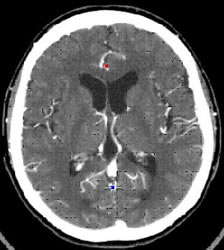

She reported having no lightheadedness, weakness, generalized sweating or a fainting sensation during the spell. After nineteen months she has had no recurrent episodes suggestive of TGA.Ĭase Two: A 68 year old female developed acute short term memory loss with no other symptoms lasting for less than 24 hours following a severe coughing crisis. Her brain MRI showed limited non-specific white matter T2 hyperintensities and mild cortical atrophy. Head CT scan, neck and brain MRA were normal following her memory loss. On neurological examination she had diminished sensory perception over the right thigh and brisk reflexes.

Her father had polyneuropathy but there were no other neurological disorders on her family. She had no history of epilepsy, migraine or similar episodes of short term amnesia. She had no cardiac arrhythmia and she was hypothyroid. She had history of chronic allergic bronchitis, bipolar affective illness-depressive type, meralgia paresthesica, right sciatica and unilateral restless leg syndrome sometimes interfering with her sleep. The episode lasted several hours and was precipitated by a bout of severe persistent dry coughing. She reported no generalized weakness, sudoration or lightheadedness with the episode. Case Report(s)Ĭase One: A 71 year old female was seen in neurological consultation a few days after developing acute short term memory impairment without loss of self-identity and with preservation of automatic behavior, comprehension of language and fluent speech. Although altitudinal TGA, probably mediated by hypoxia and brain edema, has been described before (“Mountain TGA”), the second patient that had TGA while visiting a city in South America located at high altitude, only developed her symptoms following a severe coughing crisis (12). The Valsalva maneuver has been adduced frequently as the pathogenic precipitant of TGA resulting from physical and sexual activity, but the development of TGA following persistent cough has not been singled out. A temporary disconnection syndrome affecting the basal forebrain-hippocampus pathways was suggested as the potential underlying mechanism. Multiple triggers for TGA have been identified from trivial head trauma and sexual activity, to exercise and exposure to cold water (10).Įxceptional patients with acute intracranial bleeding may present with symptoms of TGA (“secondary TGA”).A 68 year old male with acute onset of transient short term memory loss due to an intracranial left frontal hemorrhage was reported by Jacome and Yanez (11). Recurrence rate of TGA is approximately of 22 % in five years, and exceptionally occurs more than twice in a patient lifetime (9). Yet, in the particular patient presenting with acute memory loss to the emergency room, only an ictal EEG will establish with certainty the diagnosis of epileptic amnesia (8). Although an early case study suggested TGA was epileptic in nature, a subsequent study employing routine and 24 hour EEG recordings established the non-epileptic origin of this disorder in the great majority of cases (3, 7). It is possible then to infer that TGA often represents “acephalgic” or “acute confusional migraine” (6).

Current understanding on the pathophysiology of non-lesional or "primary TGA" is in support that it represents a migraine phenomenon, even that a good number of these patients may show subclinical signs of cardiovascular disease (4, 5). It may be confused with transient ischemic attacks (TIAs) or with complex partial seizures (2, 3). Often the patients exhibit repetitive queries. Transient Global Amnesia (TGA) is a condition defined by the abrupt loss of short term memory while preserving autobiographic memory and in the absence of localizing signs on the neurological examination (1, 2). Because primary TGA (no lesions apparent on imaging) may represent a migraine phenomenon according to previous reports, I propose that these two patients exhibited “cough-induced TGA”, precipitated by a similar mechanism causing cough headache but presenting as pure confusional migraine, or more formally defined, as “cough-induced persistent cognitive migraine aura without stroke.” Introduction Symptoms were typical of transient global amnesia (TGA). Imaging studies failed to show structural or acute vascular lesions on either patient. Neither of the two patients had history of migraine or epilepsy. The first patient had recurrent allergic bronchitis the second patient had hereditary pressure palsy neuropathy (HPPN) secondary to a mutation in the PMP 22 gene manifested by protracted cough, eventually ameliorated by the administration of Levetiracetam. Two patients developed acute loss of short term memory of several hours duration while preserving autobiographic memory and exhibiting no focal signs and symptoms following a crisis of severe coughing.


 0 kommentar(er)
0 kommentar(er)
